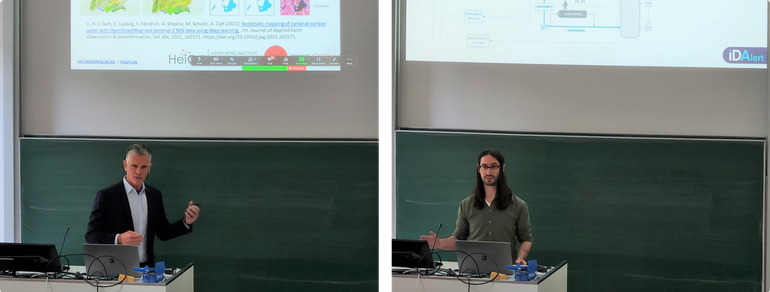Prof. Dr. Alexander Zipf and Charlie Hatfield from HeiGIT contribute with their expertise on participatory science to an interdisciplinary case study by IDAlert on the monitoring of invasive mosquito populations in Heidelberg and the Rhine-Neckar-Region. One part of the case study is the Mosquito Alert App that recently has been launched in Germany and draws on the help of citizens to identify mosquito species.
Invasive species of mosquitoes pose an increasing threat to public health in Germany: The blood-sucking insects are becoming comfortable in Germany’s warming climate, spreading dangerous diseases such as Dengue, Zika or West Nile Fever. The Mosquito Alert App, that has been freshly launched in Germany, helps to identify and monitor populations of invasive mosquito species. For that, the help of citizens is needed: With the app, they can directly send photos of mosquitoes to professional entomologist to determine if the insects belong to an invasive species that can transmit tropical diseases.

The launch of the app was accompanied by a public lecture of interdisicplinary experts from the University of Heidelberg: Prof. Dr. Alexander Zipf, scientific lead of HeiGIT, spoke about the valuable role of geoinformation and crowdsourcing to raise awareness of and mitigate emergent health threats that result from climate change. Charlie Hatfield, researcher at HeiGIT and the EU-funded public health project IDAlert, gave an introduction into the Mosquito Alert App. Both will accompany the project during the case study and contribute their expertise on particiatory science.
Download the app and become a citizen scientist today:


